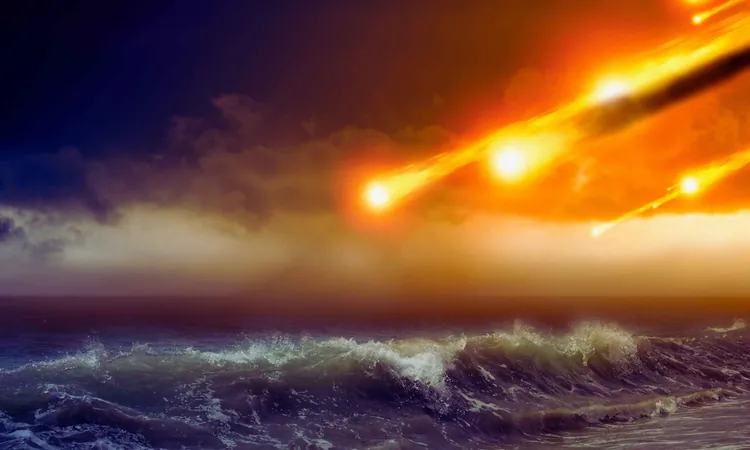
Revolutionary Meteorite Impact Study Reveals Key Insights Into Earth's Evolution
2025-09-03
Author: Lok
A Shocking Discovery from the Past
A groundbreaking new study has pushed the timeline of a significant meteorite impact in Scotland, shifting its age from 1.2 billion to 990 million years ago. This pivotal change reshapes a crucial chapter in Earth's history and sheds light on when complex life began to flourish beyond the ocean's depths.
Unlocking Earth's History in Scotland
At the heart of this project is the Stac Fada Member, a rugged rock formation in northwest Scotland. Here, tiny timekeepers called zircon crystals have captured the precise moment of the meteorite impact. According to Chris Kirkland from Curtin University, "These microscopic crystals recorded the exact moment of impact, with some transforming into the rare mineral reidite." This remarkable evidence enables researchers to move past mere speculation and firmly anchor this event in our planet’s history.
The Vital Role of Zircon
Zircon's robustness makes it essential for dating events. It can trap uranium atoms when it forms, allowing scientists to track how much uranium has decayed to lead over time. Additionally, the presence of reidite indicates that these zircon minerals experienced a high-pressure shock, further confirming the impact's severity.
A Revolutionary Timeline
By analyzing shocked zircon and its recrystallized zones, experts isolated the moment of the meteorite strike, pinpointing it to the early Neoproterozoic era—an exciting time of continental shifts and evolving life forms.
Intersecting Timelines: Life's Emergence and the Meteorite Impact
Previously, scientists believed that minerals related to gas pockets in the same rock unit were around 1.2 billion years old. However, the newly established date aligns with the emergence of early freshwater eukaryotes, a group that includes plants and animals, indicating that complex life was beginning to diversify around this time. While the study does not claim direct causation, it opens new avenues for investigation regarding how meteorite impacts may have influenced ecosystems.
The Quest for the Crater Continues
Despite finding clear evidence of the impact, the exact crater remains undiscovered. Future research—armed with improved geological surveys and tighter dating—promises to narrow down potential sources, aiding in understanding this vital moment in Earth's history.
Why This Matters Beyond Scotland
With better dating, scientists can compare meteorite impacts with biological and environmental events much more accurately. This is crucial for understanding the rise of complex life and how Earth's systems recover from large disturbances. By aligning these impacts with fossil evidence, researchers can ask informed questions related to ancient community structures and environmental changes.
This revolutionary study not only enriches the narrative of life's evolution on Earth but also showcases the power of interdisciplinary collaboration in unearthing the mysteries of our planet's past.
Read More: The Future Awaits!
Stay updated on the latest discoveries! Subscribe for more intriguing articles and insights into the world of science.




 Brasil (PT)
Brasil (PT)
 Canada (EN)
Canada (EN)
 Chile (ES)
Chile (ES)
 Česko (CS)
Česko (CS)
 대한민국 (KO)
대한민국 (KO)
 España (ES)
España (ES)
 France (FR)
France (FR)
 Hong Kong (EN)
Hong Kong (EN)
 Italia (IT)
Italia (IT)
 日本 (JA)
日本 (JA)
 Magyarország (HU)
Magyarország (HU)
 Norge (NO)
Norge (NO)
 Polska (PL)
Polska (PL)
 Schweiz (DE)
Schweiz (DE)
 Singapore (EN)
Singapore (EN)
 Sverige (SV)
Sverige (SV)
 Suomi (FI)
Suomi (FI)
 Türkiye (TR)
Türkiye (TR)
 الإمارات العربية المتحدة (AR)
الإمارات العربية المتحدة (AR)